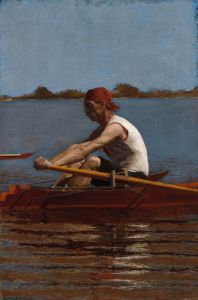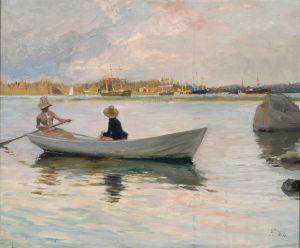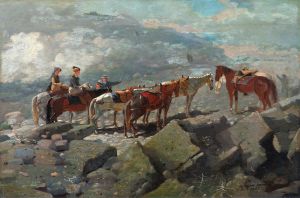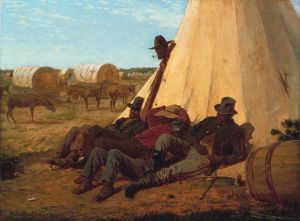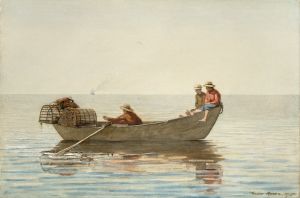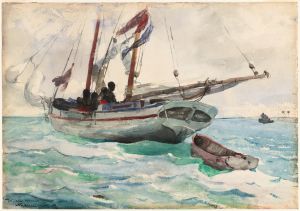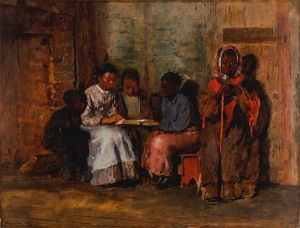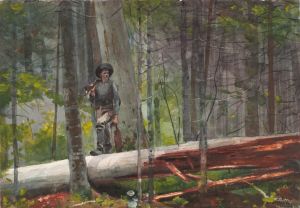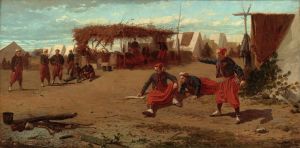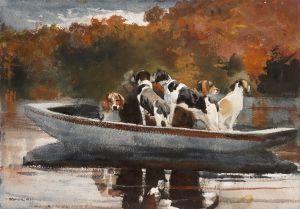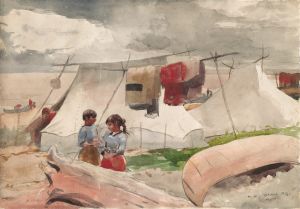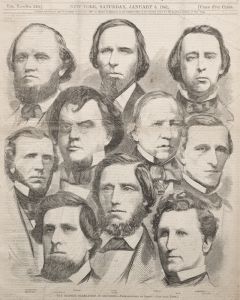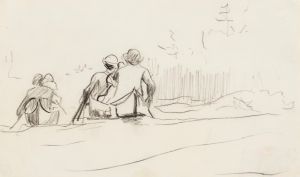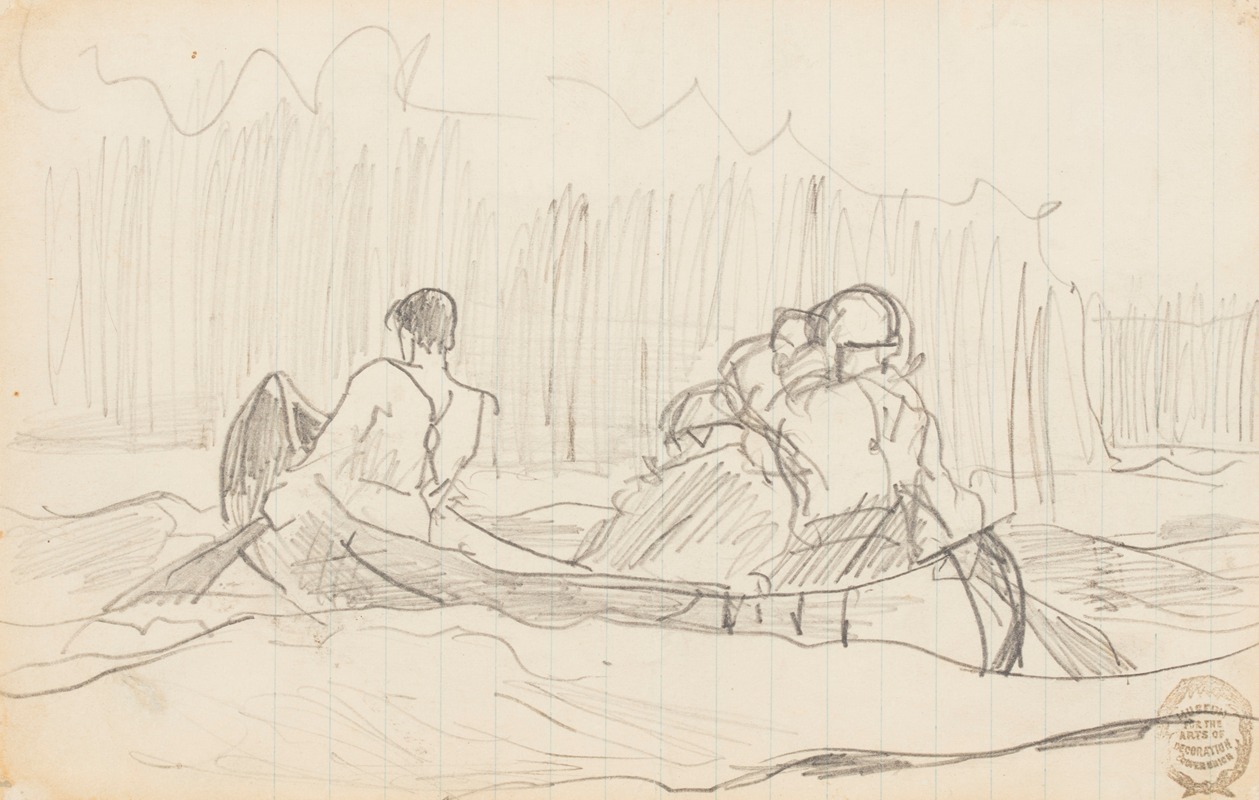
Canoe with Three Men
A hand-painted replica of Winslow Homer’s masterpiece Canoe with Three Men, meticulously crafted by professional artists to capture the true essence of the original. Each piece is created with museum-quality canvas and rare mineral pigments, carefully painted by experienced artists with delicate brushstrokes and rich, layered colors to perfectly recreate the texture of the original artwork. Unlike machine-printed reproductions, this hand-painted version brings the painting to life, infused with the artist’s emotions and skill in every stroke. Whether for personal collection or home decoration, it instantly elevates the artistic atmosphere of any space.
Winslow Homer, an eminent American artist, is renowned for his contributions to the field of painting, particularly for his works that capture the essence of American life and landscapes. Among his diverse oeuvre, "Canoe with Three Men" stands out as a notable piece, though it is not as widely discussed or documented as some of his other works.
Winslow Homer was born on February 24, 1836, in Boston, Massachusetts. He began his career as a commercial illustrator before transitioning to painting. His work is often associated with the Realism movement, and he is celebrated for his ability to depict the dynamic interplay between humans and nature. Homer's experiences during the Civil War, where he worked as an illustrator for Harper's Weekly, significantly influenced his artistic perspective, leading him to explore themes of struggle, survival, and the human condition.
"Canoe with Three Men" is a painting that exemplifies Homer's fascination with maritime subjects and his skill in portraying the relationship between man and the sea. Although specific details about the creation and exhibition history of this particular painting are limited, it is consistent with Homer's broader body of work, which frequently features scenes of outdoor life and the rugged beauty of the natural world.
Homer's maritime paintings often reflect his time spent in coastal areas, such as Gloucester, Massachusetts, and Prouts Neck, Maine, where he found inspiration in the sea and the people who lived by it. His works from these periods are characterized by their dramatic compositions and masterful use of light and shadow, capturing the ever-changing moods of the ocean.
In "Canoe with Three Men," Homer likely employs his signature style, using a realistic approach to depict the figures and their environment. The painting would typically feature a keen attention to detail, with an emphasis on the textures of the water and the play of light on the waves. Homer's ability to convey the tension and tranquility of the sea is a hallmark of his maritime paintings.
While specific information about "Canoe with Three Men" is sparse, it is reasonable to place it within the context of Homer's broader artistic themes. His works often explore the themes of human endurance and the sublime power of nature, inviting viewers to contemplate the delicate balance between humanity and the natural world.
Winslow Homer passed away on September 29, 1910, in Prouts Neck, Maine, leaving behind a legacy that continues to influence American art. His paintings, including those with maritime themes, remain celebrated for their technical excellence and profound emotional depth. Although "Canoe with Three Men" may not be as extensively documented as some of his other works, it undoubtedly contributes to the rich tapestry of Homer's artistic achievements.





